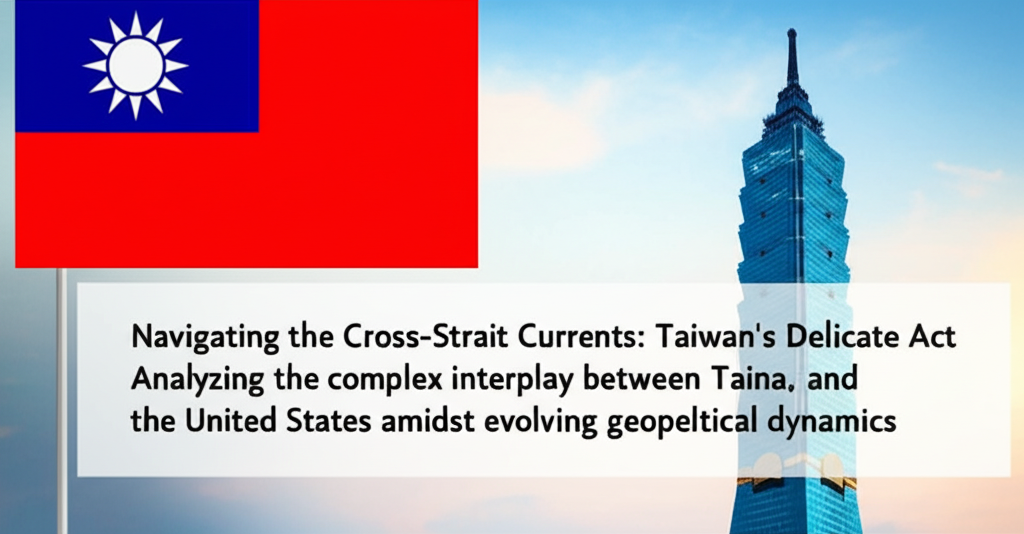Navigating the Cross-Strait Currents: Taiwan's Delicate Balancing Act
Analyzing the complex interplay between Taiwan, China, and the United States amidst evolving geopolitical dynamics.

Taiwan finds itself at the epicenter of a complex geopolitical landscape. The island nation, with its vibrant democracy and thriving economy, is constantly navigating the intricate relationships between its powerful neighbors and allies. The People's Republic of China, which views Taiwan as a renegade province, remains a significant challenge to Taiwan's autonomy, frequently asserting its claim to the island and conducting military exercises in the Taiwan Strait.
Meanwhile, the United States, a long-standing ally of Taiwan, continues to provide military and diplomatic support, upholding its commitment to Taiwan's self-defense. This backing is a cornerstone of Taipei's security strategy, deterring potential aggression. However, the US's stance also walks a fine line, avoiding direct confrontation while still maintaining a strong presence in the region.
Within Taiwan, political discourse is sharply divided on how best to manage these complex relationships. The Kuomintang (KMT) party, historically advocating for closer ties with China, often emphasizes the importance of economic collaboration and dialogue. Conversely, the Democratic Progressive Party (DPP), which currently governs, generally prioritizes maintaining Taiwan's sovereignty and deepening ties with democratic allies, including the United States and Japan. There are also discussions and concerns regarding the island's economic dependency on the mainland, its future and trade relations.
The economic relationship between Taiwan and China is a key factor, with significant trade and investment flows influencing political decisions. While economic interdependence can promote stability, it also presents potential vulnerabilities. The balance between economic prosperity and national security is a constant consideration for Taiwanese policymakers.
Looking ahead, the trajectory of cross-strait relations will depend on several factors, including the evolution of China's strategic objectives, the policies of the United States and other regional powers, and the internal dynamics within Taiwan. The ability of Taiwan to maintain its democratic values, economic resilience, and strong international partnerships will be crucial in navigating the challenges ahead.
